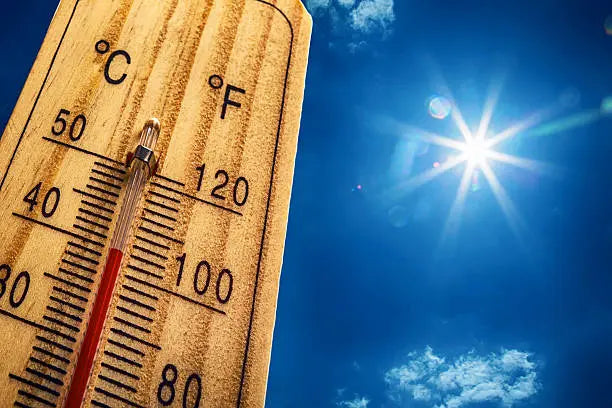Heatstroke is a serious condition that occurs when your body gets too hot, often due to high temperatures or exertion. It's important to seek medical help right away, as it can be life-threatening.
What Causes It?
- Hot and Humid: Hot weather, especially with high humidity, makes it harder for your body to cool down through sweating.
- Working Out in the Heat: Strenuous activity in hot weather can lead to heatstroke if you're not hydrated and cool.
- Not Enough Fluids: Dehydration prevents efficient sweating, which is how your body regulates temperature.
- Sudden Heat Exposure: Traveling to a hot climate without letting your body adjust increases the risk.
- Trapped Heat: Heavy, tight, or dark clothes trap heat and stop sweat from evaporating.
- Medications: Some medications can affect hydration or your body's response to heat.
- Underlying Health Issues: Chronic illnesses can make you more susceptible to heatstroke.
- Age: Children and older adults have less efficient temperature regulation.
The Dangers of Heatstroke
If not treated quickly, heatstroke can cause serious problems:
- Brain Issues: Confusion, disorientation, seizures, and even coma can occur.
- Organ Damage: Kidneys, liver, and muscles can be damaged due to dehydration and overheating.
- Heart Strain: Your heart can strain as your body tries to cool itself.
- Breathing Problems: Rapid breathing may lead to respiratory distress.
- Stomach Issues: Nausea, vomiting, and diarrhea are possible.
- Electrolyte Imbalance: This can impair muscle function and even cause heart rhythm problems.
- Skin Changes: Unlike milder heat illnesses, heatstroke often causes hot, dry skin due to sweating failure.
Staying Cool and Preventing Heatstroke
There are steps you can take to avoid heatstroke:
- Hydrate: Drink plenty of fluids, especially water, and avoid dehydrating drinks like alcohol and caffeine in hot weather.
- Get Acclimated: Slowly increase exposure to hot environments over several days to allow your body to adapt.
- Dress Light: Wear loose-fitting, lightweight, light-coloured clothing.
- Limit Activity in Peak Heat: Avoid strenuous activities during the hottest part of the day and take frequent breaks in cool environments.
- Stay Cool Indoors: Utilise fans and air conditioning whenever possible.
By understanding these causes, effects, and preventive measures, you can significantly reduce your risk of heatstroke. Remember, if you suspect heatstroke, call emergency services immediately.

